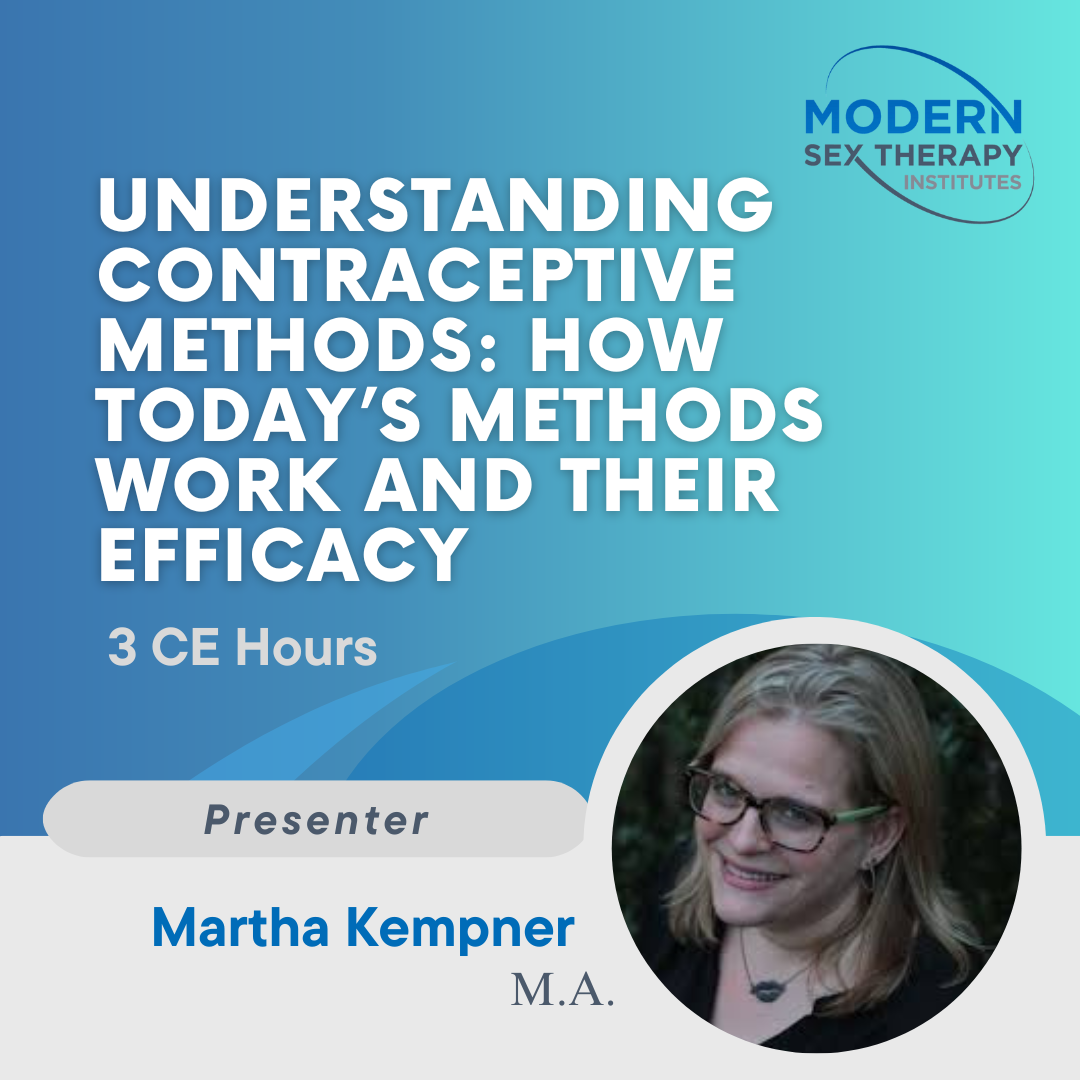Whether you’re in a classroom, an after-school program, or online, sex educators will be asked numerous questions about birth control: “Which method should I take?” “What if I take my pill late?” “My mom said that I can only get an IUD after I have kids, is that true?” In this session, we will go over the methods of birth control that are currently on the market and discuss how each works, how well they work, and the benefits and pitfalls of each. The workshop will cover condoms, hormonal methods (such as the pill, patch, and ring), IUDs, sterilization, and Phexxi, the newest product on the market which may be in a category of its own. We will also look at withdrawal and cycle tracking apps and discuss whether they should be referred to as methods of birth control. Finally, we will go into detail on the complicated way in which efficacy is calculated and what typical and perfect use numbers mean. Educators will have a chance to ask their questions and leave prepared to answer questions from others.
Objectives:
1) describe the mechanisms that make various contraceptives work
2) Discuss about how efficacy is calculated
3) describe the difference between typical and perfect contraception use
4) explain the pros and cons of various methods to others

Martha Kempner is writer, sexual health expert, and co-author of the book
50 Great Myths of Human Sexuality. She writes about sexual behavior, contraception, STIs, HIV, and her efforts to raise sexually healthy girls in a sexually unhealthy world. Her articles explain new research, provide commentary on current events, analyze social trends, and bust myths. Her work appears regularly on RewireNewsGroup.com,
thebody.com, and
bedsider.org. And, she recently launched
Sex on Wednesday, a somewhat snarky weekly newsletter designed to help sex educators, parents, and everyone else stay up-to-date on sexual health in the news.
She spent over a decade at SIECUS where she served as the Vice President for Information and Communications and was in charge of the organization’s websites, publications, and PR efforts. Since that time, Martha has been an independent writer and consultant writing curricula, reports, fact sheets, and web content for non-profits organizations, sexual health brands, and pharmaceutical companies.
Martha has an M.A. in Human Sexuality from NYU. She lives with her husband, two daughters (a teen and a tween), and a really large poodle named Asparagus.
Class originally recorded: 2/23/2022.
Social workers completing this course receive 3 clinical continuing education credits.


